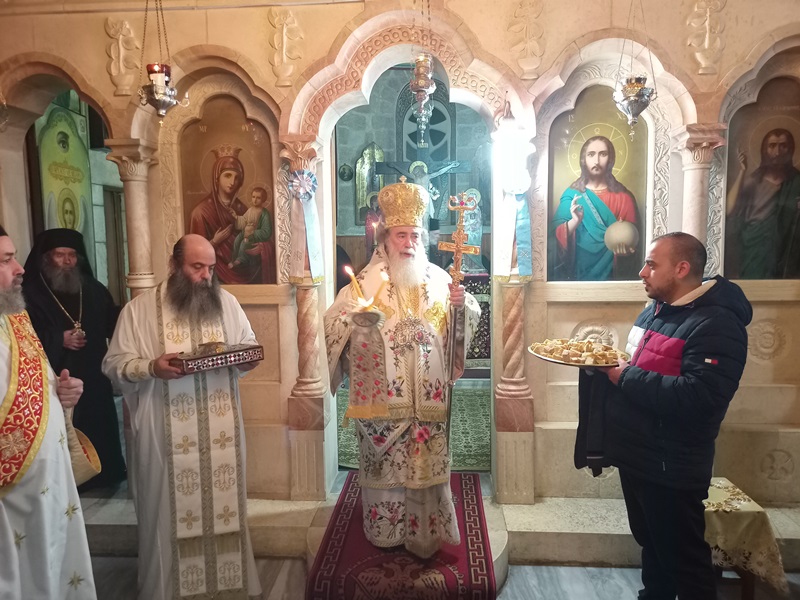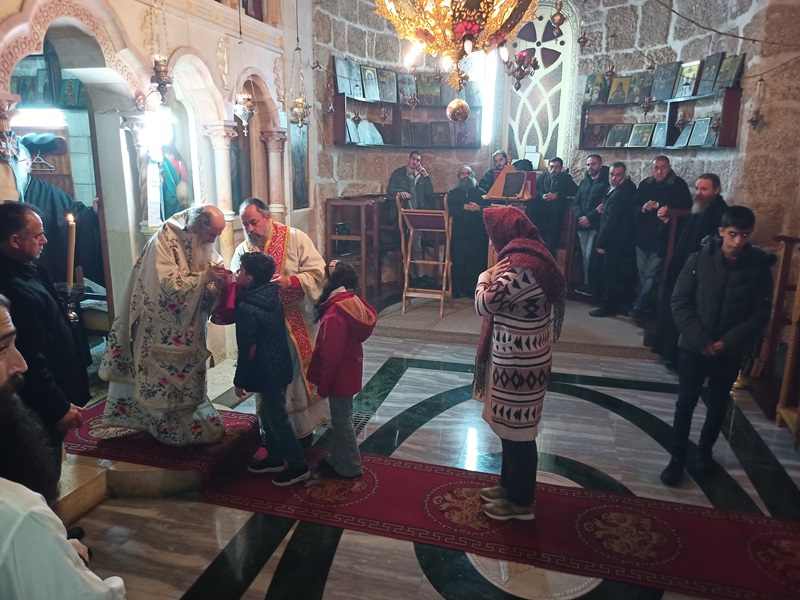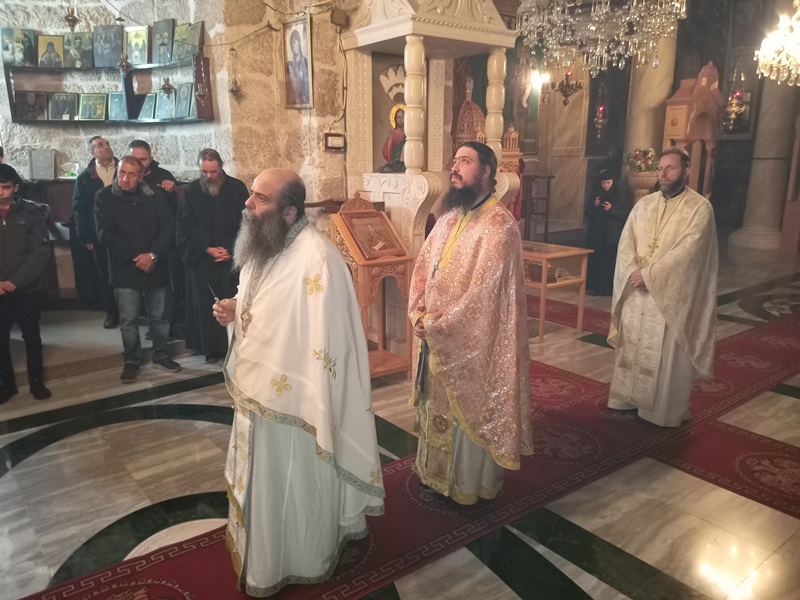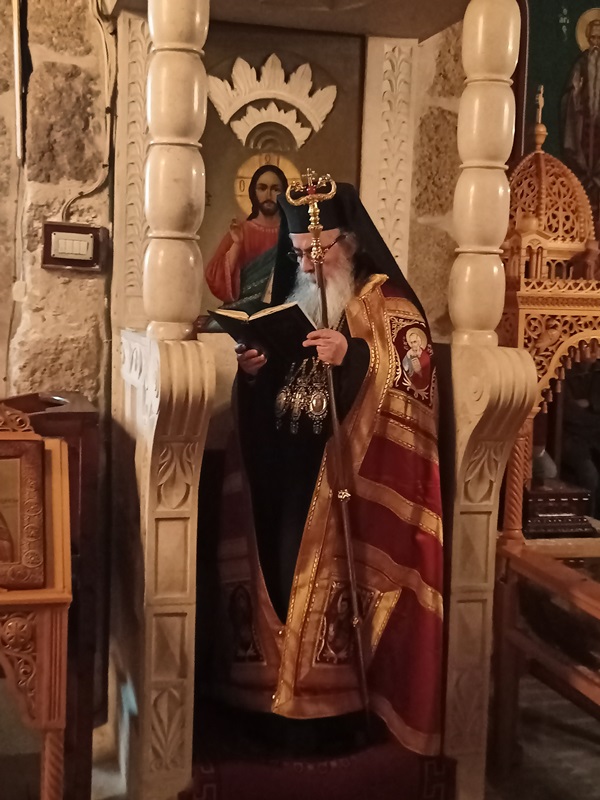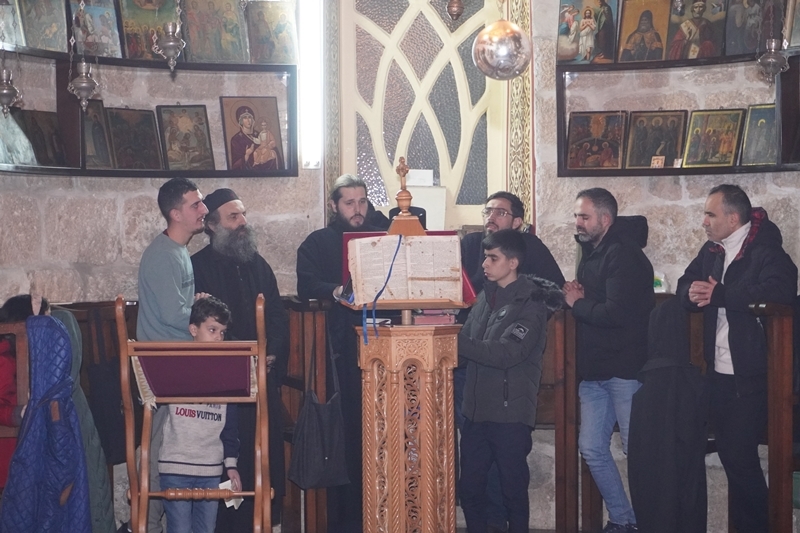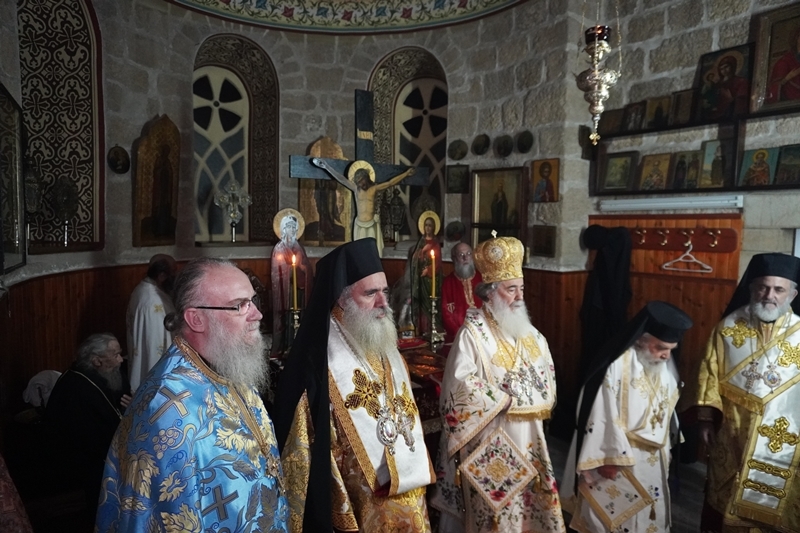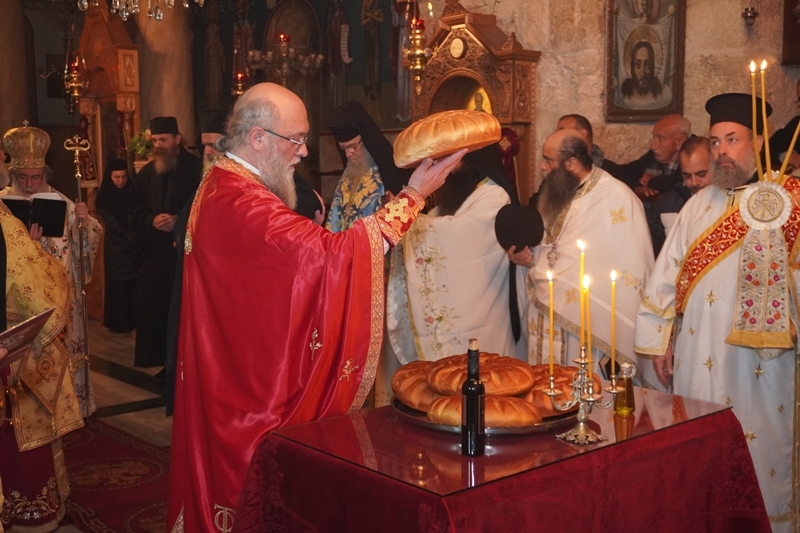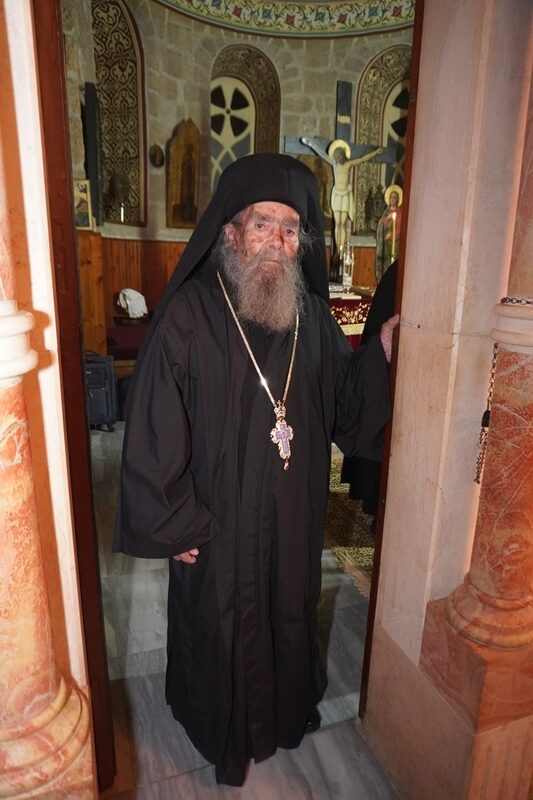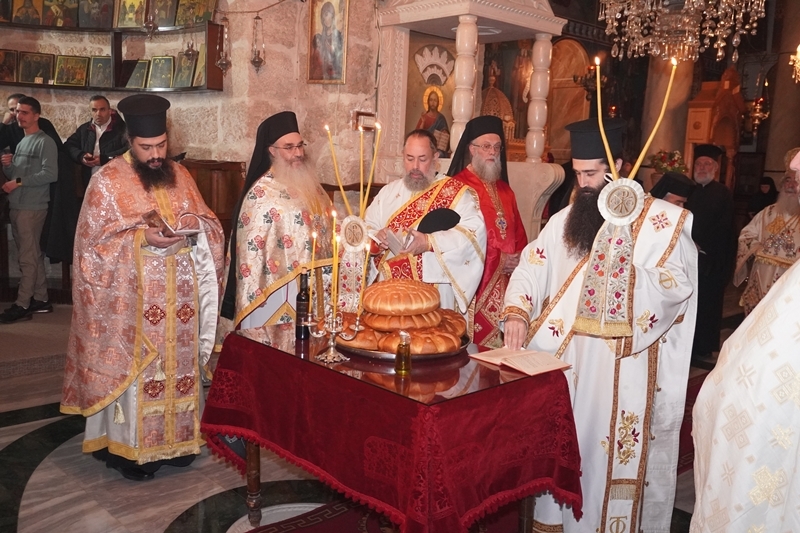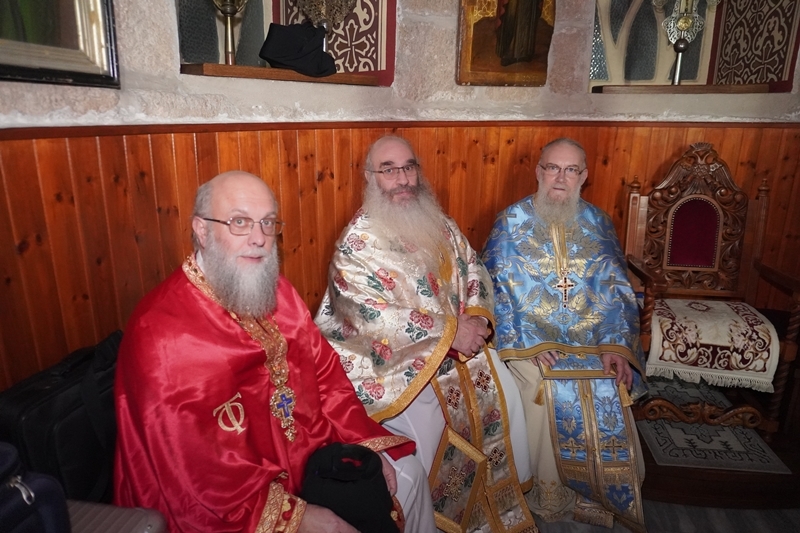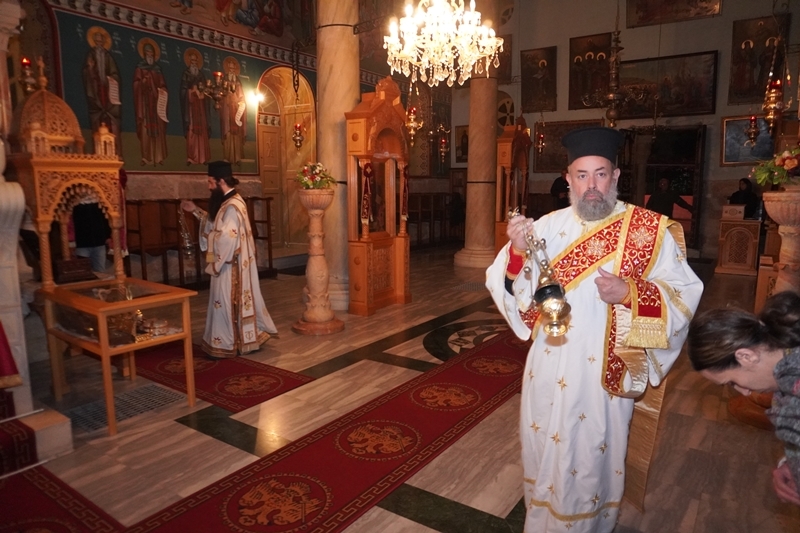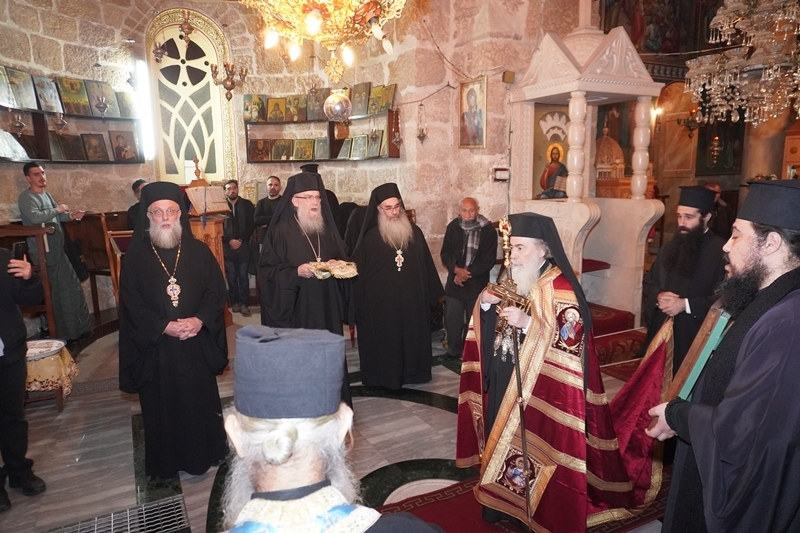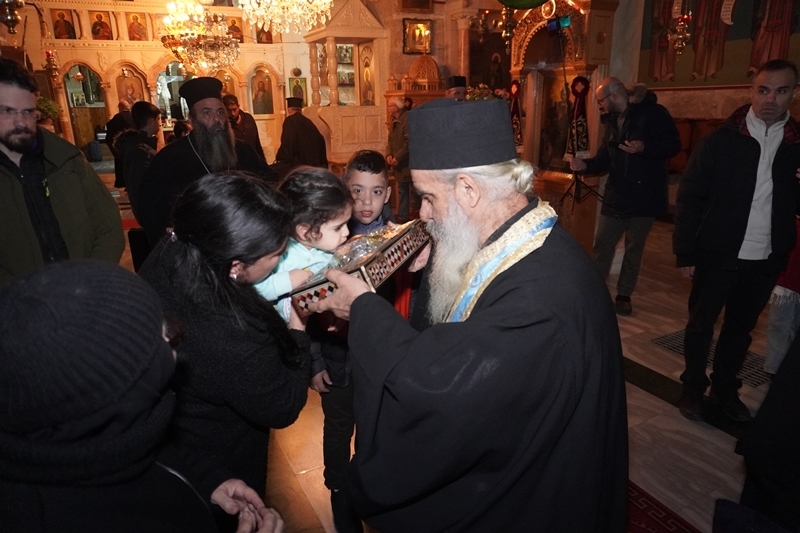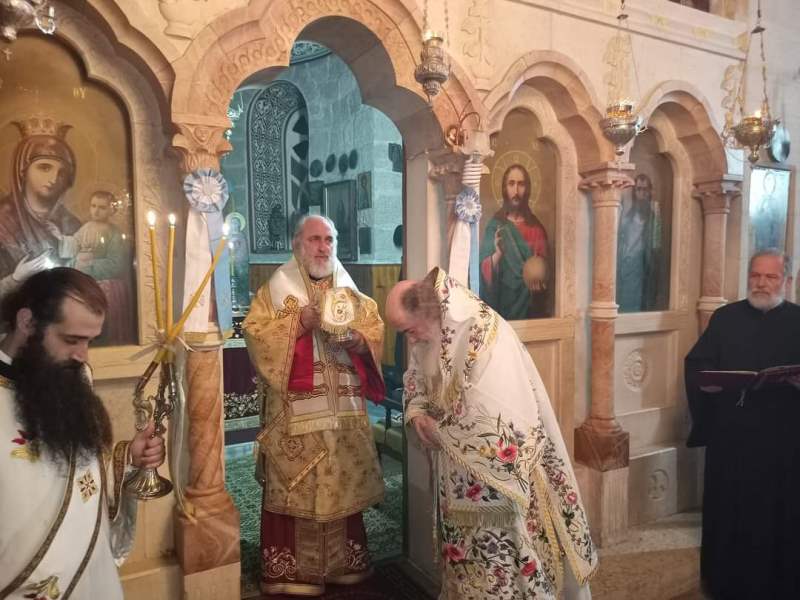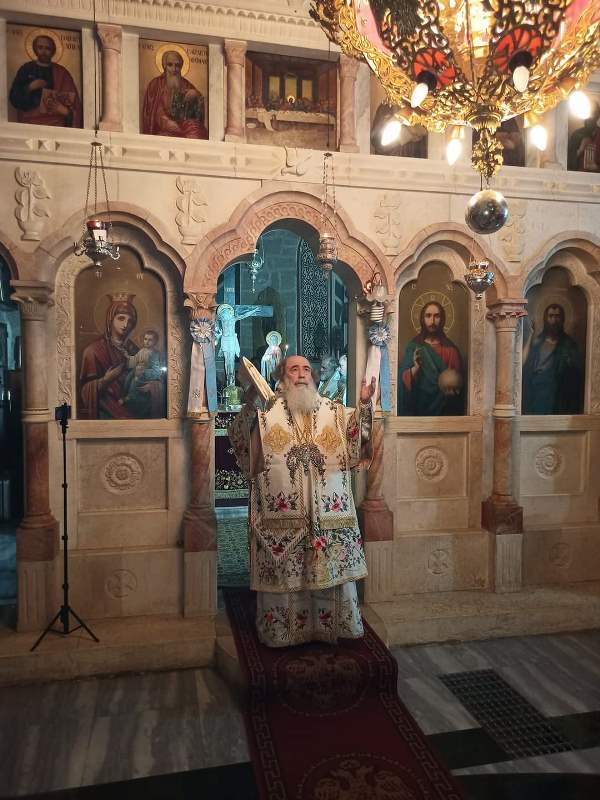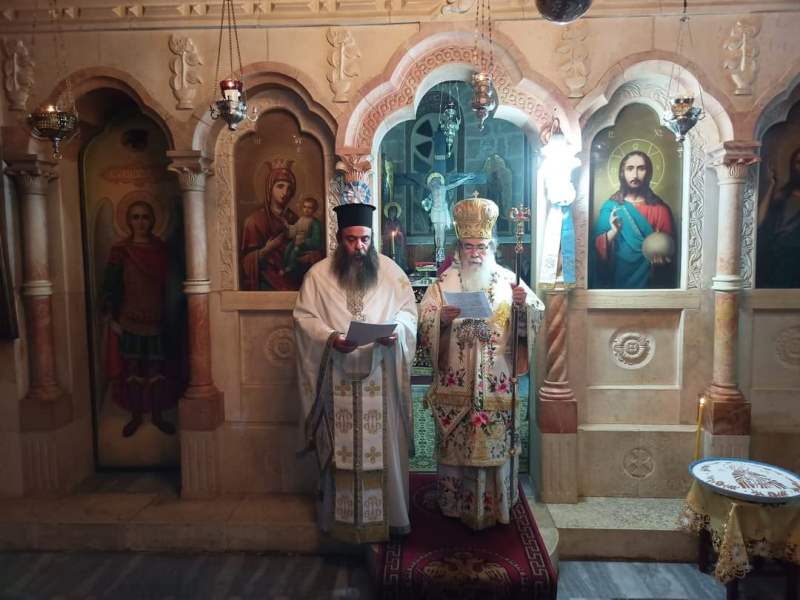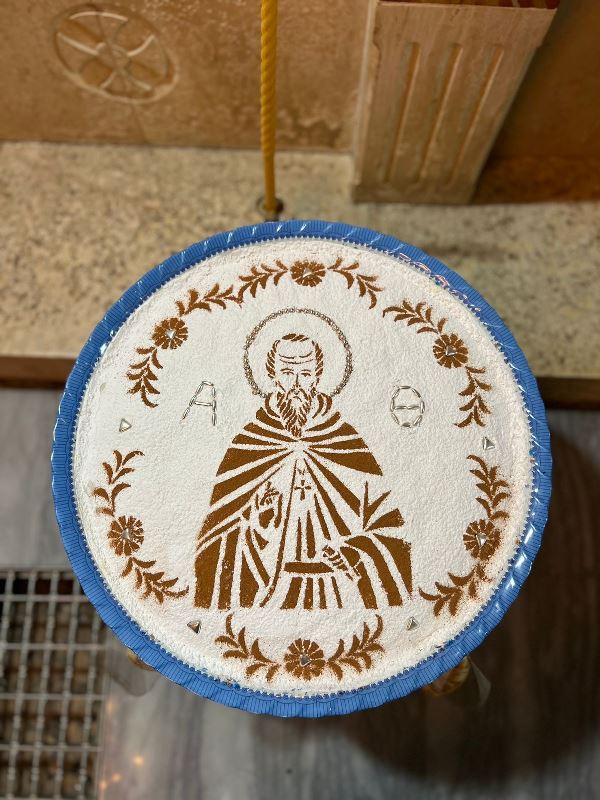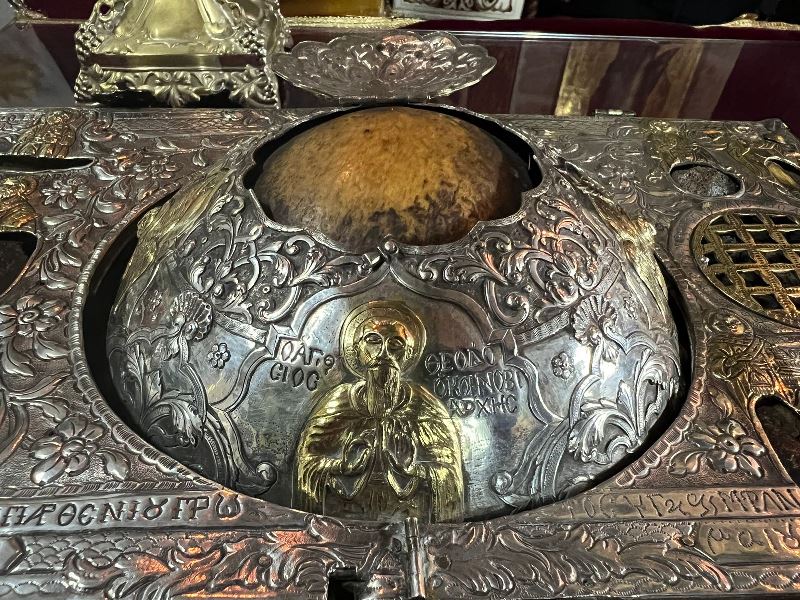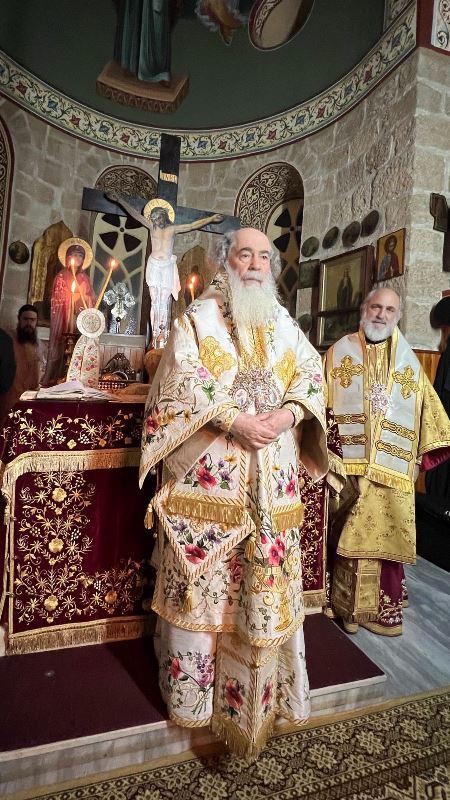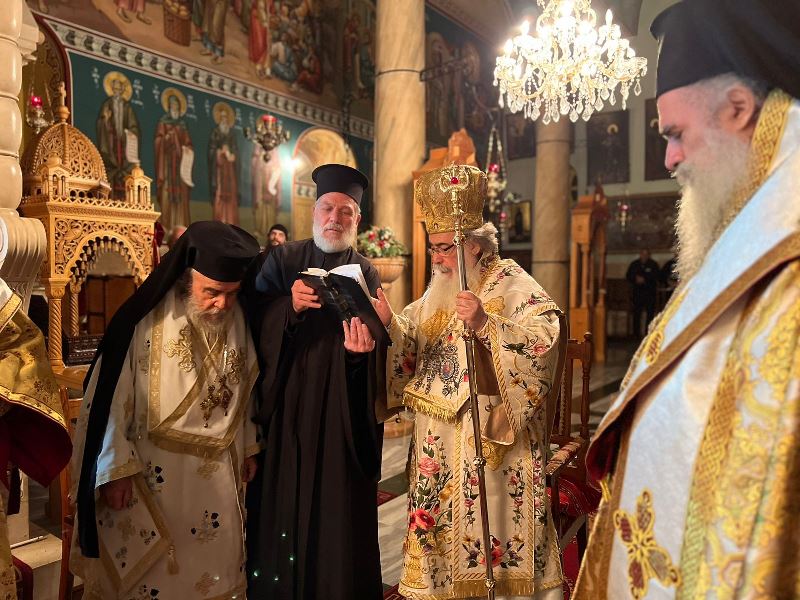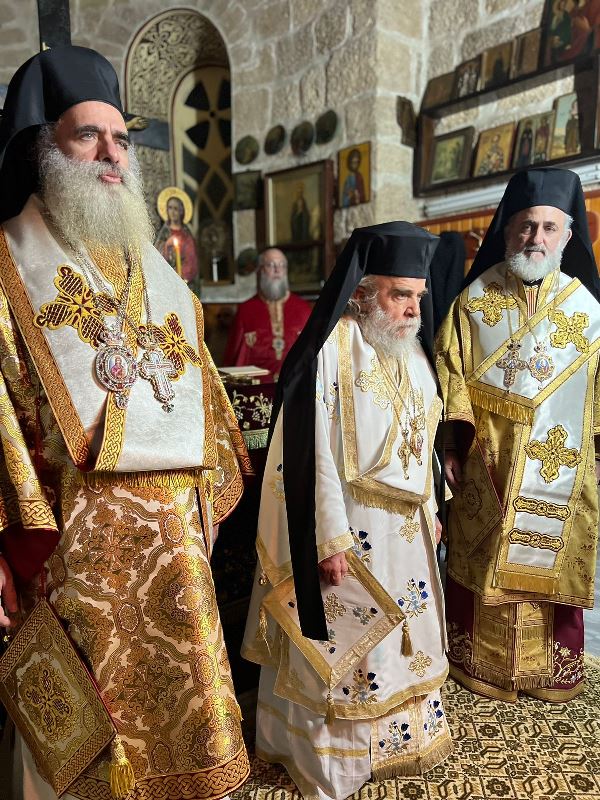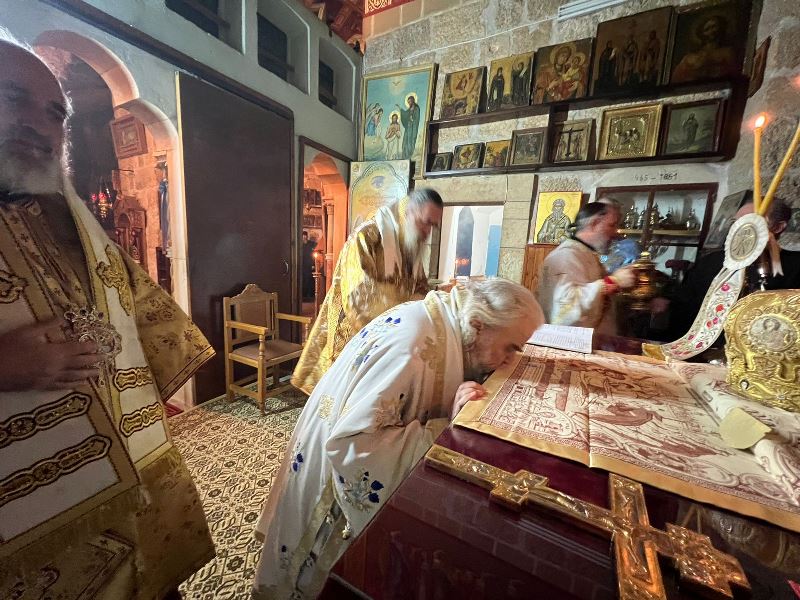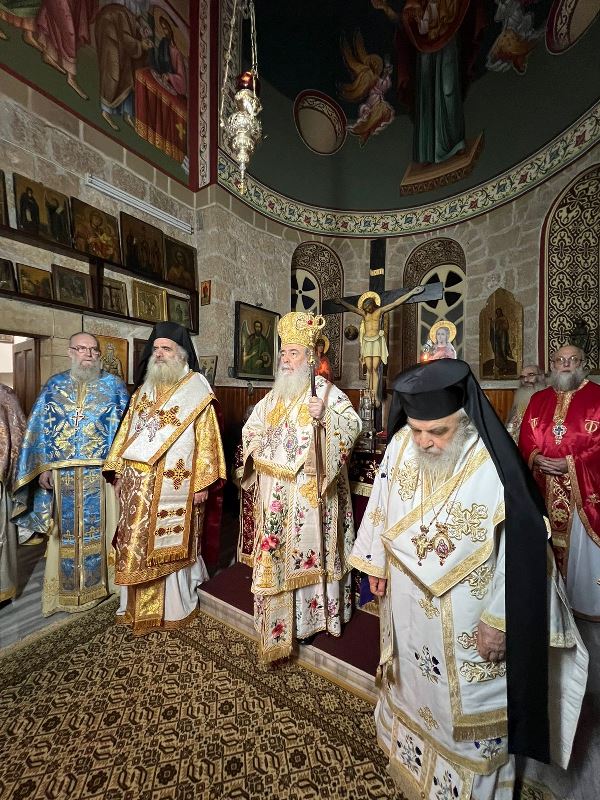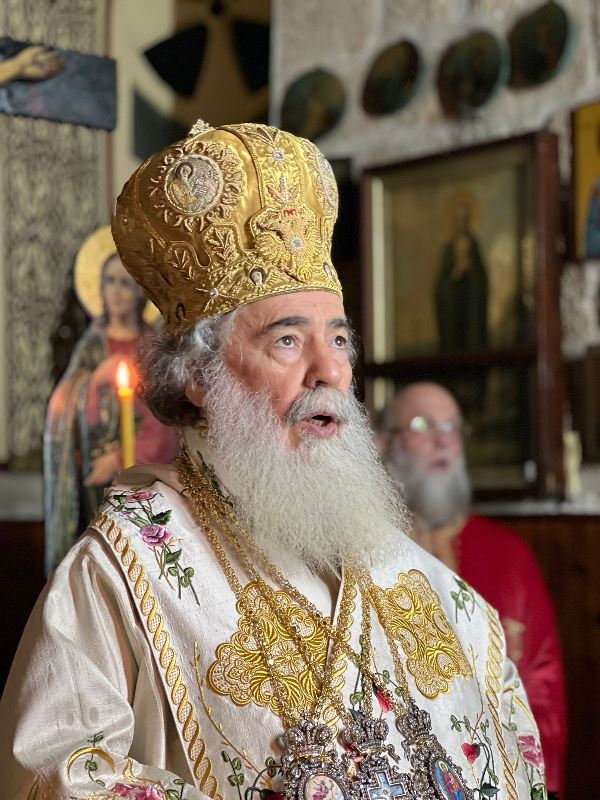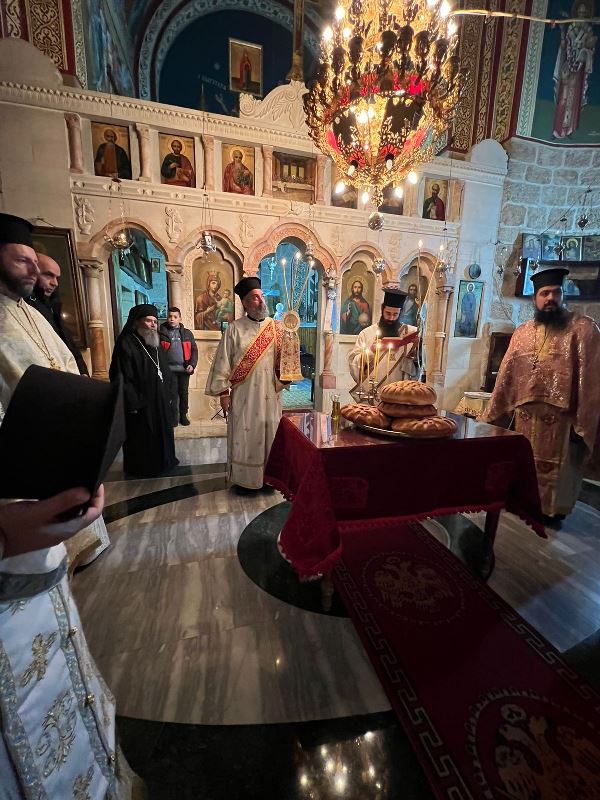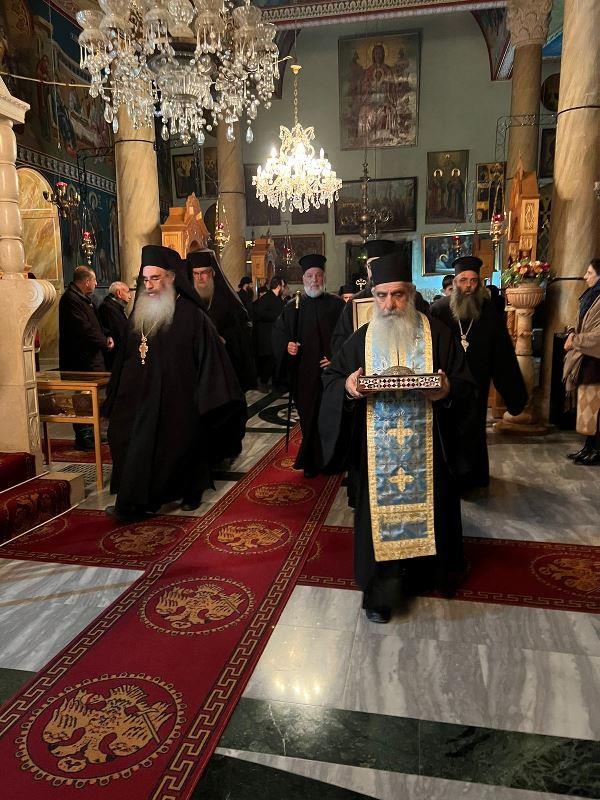The Feast of Saint Theodosius the Coenobiarch at the Patriarchate of Jerusalem
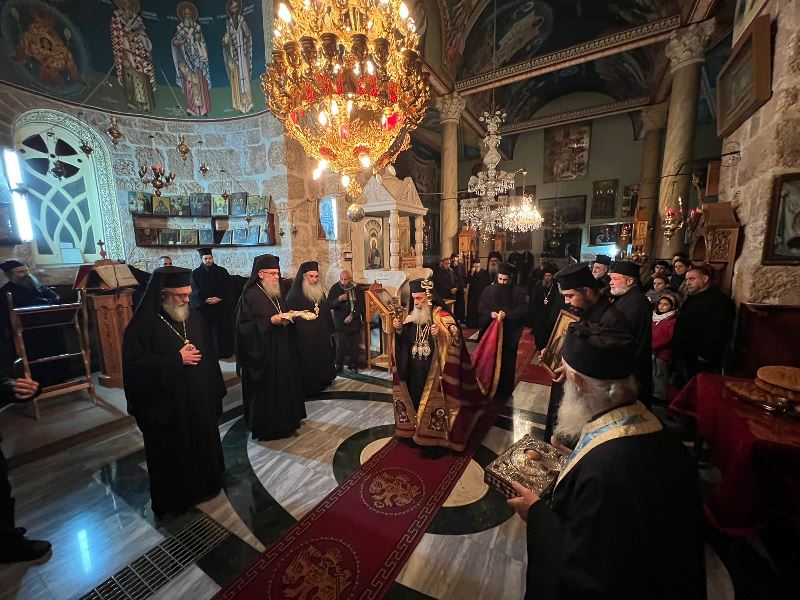

On Wednesday, January 11th/24th, 2024, the Patriarchate celebrated the commemoration of our holy Father Theodosius the Coenobiarch in the Holy Monastery founded by him and bears his name in the desert of Judea a few kilometres from Bethlehem and the Monastery of Saint Savvas.
During this feast, the whole Church, especially that of Jerusalem, remembers that the Holy Theodosius came from his native Mogarissa in Cappadocia to the Holy Land in the year 451.
Also, initially, he practised in the vicinity of Jerusalem’s Holy Monastery of Ikelia and later he practised in extreme solitude in the desert, in the cave where the Magi spent the night, “returning by another way to their homeland”. Then, through prayer and humility, he received the enlightenment from the Holy Spirit, so that he guided a multitude of monks to the life in Christ, who begged him to found this Monastery as a Coenobion, that is, as a Monastery, in which novice monks dwell in patience and common life and obedience until they prove themselves worthy for a solitary life in Lavra.
In this Monastery, the monks practised manual labour through which they met the needs of the poor and needy. The condition of entry into the Monastery is “no one lazy shall enter”. There were about 400 monks in this monastery and Saint Sophronios and Saint Modestos, the Patriarch of Jerusalem, also practiced there. Saint Theodosius was appointed as exarch of the Coenobitic life, while Saint Savvas was appointed as the head of the Laureotic life.
With Saint Savvas, his compatriot, they emerged as supporters of the decisions of the Fourth Ecumenical Council of 451, that Christ God is of one essence and two natures.
In this monastery, where the tomb of the Saint lies, an All-night Vigil was held by His Beatitude Patriarch Theophilos of Jerusalem, with concelebrants their Eminences, the Archbishops Aristarchos of Constantina and Theodosios of Sebasteia, Metropolitan Joachim of Helenoupolis, the Spiritual Father of Saint Sabba’s Monastery Archimandrite Eudokimos, the Archimandrites, Ignatios, Nectarios and Christodoulos, Priests from Bethlehem, Beit Jala and Beit Sahour. The Vigil was attended by only a few faithful Christians due to the ongoing war.
Before Holy Communion His Beatitude delivered the following Sermon:
“Lifting high to God thy most divine hands, thou wast shown to be a radiant pillar made to shine with the rays of thine earnest prayers. For since thy mind soared to Heaven, O righteous one, and thou partookest of things whereof none may speak, thou didst wholly flash like lightning and now dost pray Christ God that his great mercy may be granted unto us” (Matins, Kathisma 3), the hymnographer of the Church proclaims.
Beloved brethren in Christ,
Reverend Christians
Christ, Who appeared to us in the Jordan has gathered us all in this holy place, where Saint Theodosius founded this marvellous Monastery and lived in this cave, to celebrate his holy commemoration in Eucharist.
Abba Theodosius founded a great Coenobion, inhabited by many people which excelled above all in Palestine, a work that was done by the good pleasing of God the Father with Christ and the inspiration of the Holy Spirit, according to the biographer of the Saint, Elder Cyril of Skythopolis.
Coming from the town Mogarissa of Cappadocia, Saint Theodosius came to the Holy Land and became the great beauty of Palestine and the boast of the desert and the monastic schema, the support of right doctrines, the general and defender, and guide and protector of the coenobitic rule, according to his biographer.
The above are confirmed by his hymnographer too, who writes: “Ministering unto the Virgin and Mother of Christ God, thou didst receive the invincible grace of the Spirit, O Father Theodosius, and didst cast down invisible enemies” (Matins, Ode 4, Troparion 2).
Indeed, Saint Theodosius “reached a steadfast tower of virtues” and “received the invincible grace of the Spirit” because he knew that “our conversation is in heaven” (c.f. Hebrews 10,34). The way and the manner of our Father Theodosius to reach “our conversation in heaven” was his humility and obedience according to the prototype of the Only Begotten Son and Word of God the Father, our Lord Jesus Christ, who “being the Son” learned obedience through His sufferings, and having completed His mission, became the cause of eternal salvation to those who obey Him (Hebrews, 5,8-9), Saint Paul preaches. A characteristic of Christ’s obedience is His willingness to obey. “Our inclination is not sufficient unless we apply the works; for the work is the proof of the inclination” Saint Gregory the Theologian says.
The actions of obedience are indeed the proof of the inclination, because obedience is distinguished into slavery of the sin leading to death and righteousness in Christ, which leads to the Kingdom of God, Saint Fotios says, interpreting the words of Saint Paul: “Know ye not, that to whom ye yield yourselves servants to obey, his servants ye are to whom ye obey; whether of sin unto death, or of obedience unto righteousness?” (Romans 6,16).
Our Holy Father Theodosius became a genuine worker and servant of Christ’s righteousness through the introduction of the coenobitic manner of monastics. And this was so because our Holy Father did not seek only his own deification, but also of those who retreated into the monastery he founded. “God made us in this manner, to become communicants of the divine nature and partakers of His eternity and thus we may be similar to Him through deification by grace” Saint Maximus the Confessor says.
And the “deification by grace” is no other than the gift or the indwelling of the Holy Spirit, as Saint Cyril of Alexandria says, regarding Christ’s words, “Come; for all things are now ready” (Luke 14,17). “The God and Father of Christ prepared for those on earth the goods given to the world by Him, the forgiveness of sins, the intoxication of the Holy Spirit, the splendour of adoption, the kingdom of heaven”. These spiritual goods, which God prepared for those on earth, i.e. for us humans, were achieved by Saint Theodosius. These goods are asked and can be acquired by every person who loves God with all his heart and with all his mind.
It is noteworthy that the one who truly loves God is the one who has reached the highest degree of spiritual perfection, as Saint Paul preaches, saying: “But we speak the wisdom of God in a mystery, even the hidden wisdom, which God ordained before the world unto our glory: Which none of the princes of this world knew: for had they known it, they would not have crucified the Lord of glory. But as it is written, Eye hath not seen, nor ear heard, neither have entered into the heart of man, the things which God hath prepared for them that love him (I Cor. 2, 7-9). That is why the psalmist also begs God saying: “O send out thy light and thy truth: let them lead me; let them bring me unto thy holy hill, and to thy tabernacles” (Ps. 43,3).
This light, that is, the Holy Spirit, did God the Father send to His Only Begotten Son, our Lord Jesus Christ, in the form of a dove in the Jordan River during His baptism by Saint John the Baptist, for the salvation of our souls. “The redeeming grace of God for all people was revealed”, Saint Paul says. And the hymnographer: “Today Christ is come to be baptized in the Jordan; today John toucheth the head of the Master” (Matins, Praises, Both now).
This marvellous and paradoxical mystery was also preached and confessed by Saint Theodosius, as his hymnographer writes: “He Who cleanseth the world, is baptized, even God, Who is become a mortal as I am for my sake. Him didst thou proclaim in two natures, O blessed Theodosius” (Matins, Ode 6, Troparion 2). Also, “Calling thy teachings to remembrance, Theodosius, we proclaim Christ in two essences, acknowledging the two natural wills and energies and authorities in God Who was baptized in the flesh” (Matins, Ode 9, Troparion 3).
As for us, my beloved brothers, let us beseech our Holy Father Theodosius with the Most Blessed Theotokos and Ever-Virgin Mary, that they may intercede with our Lord for our souls and peace in the Holy Land and a cessation of fire in the Gaza Strip. After Saint Paul let us say: ” For the grace of God that bringeth salvation hath appeared to all men, teaching us that, denying ungodliness and worldly lusts, we should live soberly, righteously, and godly, in this present world; Looking for that blessed hope, and the glorious appearing of the great God and our Saviour Jesus Christ” (Tit. 2, 11-13). Amen! Many and peaceful returns”.
After the Divine Liturgy, the active and diligent, benevolent renovator of the Monastery Archimandrite Ierotheos hosted a reception for the Patriarchal Entourage.
His Beatitude blessed him, wishing him a long life, to continue his heroic ministry in the Monastery, in which he has been ministering for over forty years.
From Secretariat-General
Source: Patriarchate of Jerusalem
